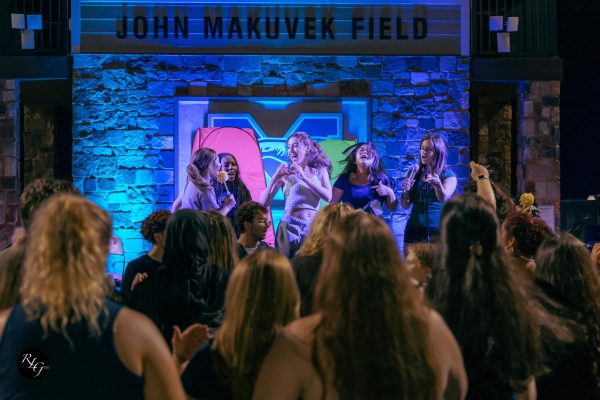A Festivus for the Rest of Us

Photo from Creative Commons under Creative Commons license.
While many students this time of year may be looking forward to Christmas, there are some who look forward to a different December holiday: Festivus.
Originally conceived by writer Daniel O’Keefe, Festivus was celebrated by the O’Keefe family as early as 1966. According to O’Keefe, the name “just popped into my head.” The O’Keefe Festivus originally took place on the anniversary of O’Keefe and his wife’s first date.
As described in “The Real Festivus”, the holiday featured a meal with a main course of turkey or ham. In a CNN interview, O’Keefe’s son, Dan O’Keefe, described how his father would put a clock in a bag and nail the bag to the wall for Festivus.
The elder O’Keefe would do this in secret and then proudly reveal his work to the family. According to the younger O’Keefe, the meaning of the clock in a bag was never revealed. His father always said it was not for him to know.
Festivus later became enshrined in popular culture when it was featured in “The Strike,” an episode of “Seinfeld” co-written by Dan O’Keefe. After hearing of the bizarre holiday, executive producers Alec Berg and Jeff Schaffer persuaded O’Keefe to make Festivus a part of the episode’s plot. In the episode, George Costanza’s father, Frank, creates Festivus as a response to the commercialization of Christmas.
Festivus, as it is celebrated today, is mainly based on its portrayal in “The Strike.”
Celebrated on December 23, the holiday begins with the Festivus pole, an unadorned, aluminum pole that is displayed in the host’s home. The pole, conceived by Schaffer, replaced the clock in a bag nailed to the wall.
A Festivus dinner then takes place. In “The Strike,” the dinner actually occurs the evening before Festivus, but there are no set guidelines for the Festivus dinner. It can be held the day of Festivus, and meals can vary. In “The Strike,” the Costanzas serve a meal similar to meatloaf, which differs from the original O’Keefe dinner.
Immediately after Festivus dinner is served, the Airing of Grievances takes place.
Each person describes how they have been disappointed by the other guests, and the world, throughout the year. In “The Strike,” Frank Costanza famously begins the Airing of Grievances with the phrase, “I got a lotta problems with you people, and now you’re going to hear about it!”
Once the Airing of Grievances ends, the Festivus Feats of Strength begin.
Despite occurring during the Festivus dinner in “The Strike,” the Feats of Strength can also take place after the dinner. The host or head of the household selects one guest and challenges them to a wrestling match. Festivus tradition dictates that the celebration is not over until the host is pinned to the ground. Failure to pin the host results in Festivus continuing until the requirement is met.
 Another part of the Festivus tradition is the Declaration of Festivus Miracles.
Another part of the Festivus tradition is the Declaration of Festivus Miracles.
A declaration can take place at any time of the celebration. In contrast to most miracles, Festivus Miracles are often easily explainable events. However, declaring such a minor event a “Festivus Miracle” may make it seem more special.
Festivus can be done on the budget of a college student. Festivus poles can be purchased online, but there are also ways to make your own Festivus pole. A spare paper towel tube can be covered with aluminum foil to make a miniature Festivus pole.
The lack of established guidelines concerning the Festivus meal and timing of Declarations of Festivus Miracles mean people can put their own spin on the holiday. Miracles can be declared any time during the Festivus celebration. The contents of the Festivus meal can be up to the host, or a potluck Festivus dinner could be held.
Even more established facets of Festivus, such as the Feats of Strength, can be adapted to the host’s liking. Instead of wrestling for the Feats of Strength, a board game or video game could be used as the competition.
Festivus can provide a fun holiday celebration, whether it is celebrated in the original O’Keefe fashion, as it is in “The Strike,” or even with some of the unique changes listed above.
The vast number of variation may be another reason that Festivus is truly “for the rest of us.”











